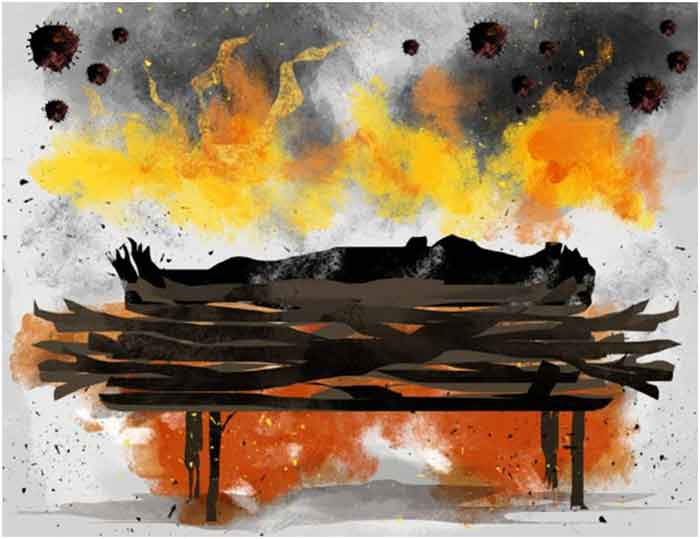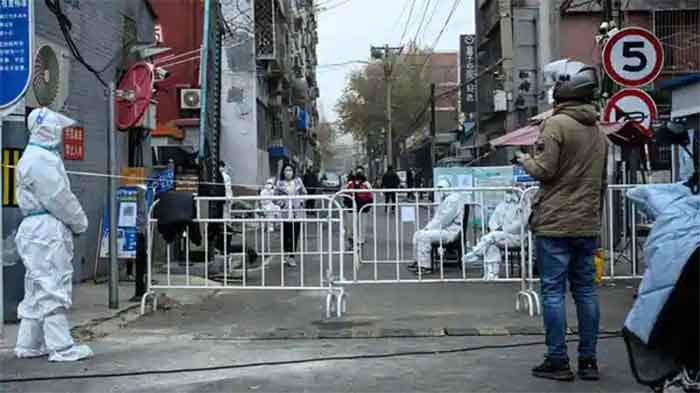
The corona virus has brought the entire humanity to a standstill. It has pushed the world to the domains of uncertainty and perplexity, making us question the inherent mystery of existence itself. While those who succumbed to the pandemic, their existence became statistics, but for the vast majority of our country, surviving the stifling grip of poverty and the pangs of hunger that accompanies it became the bigger struggle. Only a privileged few like me could philosophise human life and its ephemerality while worrying about productivity and finishing my doctoral research. When one belongs to a society of great inequalities and injustices surrounds us on a daily basis, how does one then make sense of a disaster like Covid-19 pandemic and its additional impacts. How do I make sense of my challenges vis-à-vis the challenges of the rest of the world around me?
When the pandemic hit India, I was a full-time scholar having a fellowship, in my third year of PhD program, a newly married woman in the beginning of my thirties. I was trying to finish data collection in Itanagar, my ethnographic field site. Enrolled in the department of Sociology, in a Central University, my doctoral research focuses on the urbanisation process of this hill town, the capital of Arunachal Pradesh. Now, after almost two years, without a fellowship, I am in my fifth year trying to write my thesis with whatever data I have. Having survived the pandemic so far with both sets of parents and family members alive, I can only count my blessings and tons of privileges. But even in the midst of all the privileges, death, grief and pain was vicariously felt from the screens of our laptops and smartphones as the pandemic unfolded in the country forcing us to think about life and its impermanence.
The PhD journey is not only an academic one, but also one of self-reflection and personal growth. But in a world where many nations along with ours, the largest democracy, is leaning towards a far-right totalitarian discourse where critical thoughts and dissenting voices are getting muzzled, such self-reflexive journeys are discouraged. What is asked of us is to be part of the modernist indulgence of economic growth and material consumption. But when you belong to a critical discipline like sociology as well as part of the larger consumerist world around, focusing on life goals becomes difficult. On one hand, I had the option of pursuing an academic career in social sciences. On the other, take my social privilege of having been married to a financially-sound husband and prioritise becoming a mother. As the higher education scene in India was becoming more and more technocratic (science and technology add value in the economic doctrine of neoliberalism) that relegated social sciences and humanities as redundant subjects, my first option felt increasingly uncertain and far-fetched. We are being continuously told that social sciences produce anti-national’ ‘sicular’ liberal retards. On the other hand, my option of fulfilling my biological ‘duty’ as a woman required calculating the risks of conceiving a child in the midst of a pandemic. When the nation-wide lockdown made academic institutions shut down, and I was displaced from my safe-space of the campus to home, my gendered reality with its privileges and pressures became more real to me than ever.
Stuck at home, as I swayed between reflecting on life and on the relevance of my research, I observed my fellow scholars rushing to suck up real-time data on how people are responding to the unfolding pandemic, or continuously working towards increasing an online presence attending webinars and conferences. I wondered how to catch up and learn to talk to a screen, skills which I was lagging behind due to my conscious decision to avoid popular social media. My field site being outside my hometown and home state, field work came to a complete stop. The various lockdown regimes added additional borders to the existing one of Inner Line Permit (ILP) which is needed to enter Arunachal Pradesh. News reports of traditions revisited and old rituals to ward off epidemics being performed by ethnic communities of Arunachal Pradesh filled my notifications. Itanagar, my field site adapted to the new regime of pandemic living with masks and barricades, quarantine zone, online deliveries, all without my watch making the social ethnographer in me squirm in FOMO-‘fear of missing out’.
When the country slowly opened up phase-wise, our university too decided to open. However, the university administration preferred to call back only physical sciences students; because they have ‘laboratory work’. After months in February 2020 when humanities and social sciences students were called back, it was already time for the second wave in the country. The university again decided that students with ‘laboratory work’ need the campus, the social sciences can work from home. As we reasoned with the University administration as to why we too have an equal right to our campus and educational facilities, and not all homes are equipped for work, I see reports that emphasised the need for more social scientists in pandemic management. I saw articles almost daily, where the hopeful bantered that the pandemic has created opportunities for us to build back better, provided us with time to rethink and refocus our ways of dealing with our planet and that social scientists had a powerful role to play in miraculously rebuilding our imperfect world. But here on our campus, social sciences have to wait.
In such a situation how am I supposed to be doing what I was doing? How do I reflect on the interplay of my multiple selves- the woman with its various familial roles and the social science scholar- with the world? Do I worry about the crisis of the pandemic which got exaggerated as catastrophe and crisis criss-crossed each other as India faced cyclones, locust invasion, gas leak, wildfires and landslides? Or do I reflect more intensely on the regime that loosens environmental laws, land laws, farm laws making it easier for corporations to access our forests and rivers, control our food and eventually will make way for more catastrophes? Do I accept living in a society that normalises and sanctifies surveillance, pushes technocratic solutions to education all in the name of the pandemic? How am I as a social researcher supposed to make sense of it all? The hopeful in me believes in the strength of social sciences which will reinvent itself to the challenges that the pandemic has posed us with. It will show us how to contribute meaningfully to a better post-recovery world as long as the social scientist in us holds on to the reflexive empathic thinking selves.
Bhaswati Borgohain: I am an ICSSR doctoral fellow in the Department of Sociology, Tezpur University. Prior to it, having a sociology-social work background, I have worked as a social researcher in the development sector, especially in the Northeastern region of India.
















































